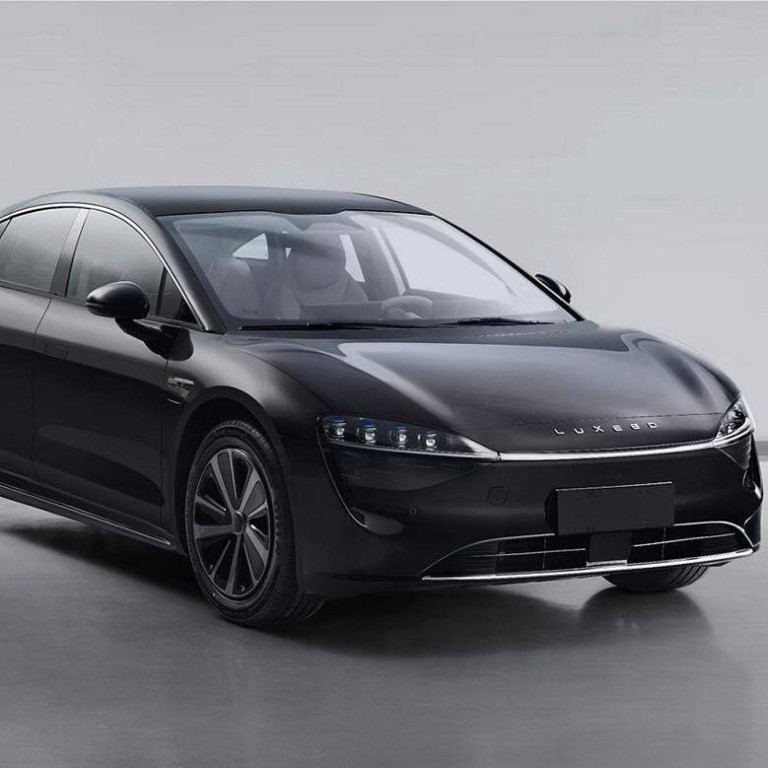
‘Superior to Tesla’s Model S’: Huawei and Chery Automobile EV venture Luxeed to launch first production model in November
- S7 ‘will be superior to Tesla’s Model S in various aspects’, Huawei executive says
- Luxeed a ‘marriage between Huawei’s technological clout and Chery’s manufacturing heft’: analyst
Luxeed, a marque developed by state-owned Chery Automobile and telecoms equipment giant Huawei Technologies, will launch its first production model in November.
The S7, a coupe-like electric vehicle (EV), will be based on Chery’s E0X platform, which has been designed for two-motor all-wheel-drive EVs, according to information published in August on the website of China’s Ministry of Industry and Information Technology.
“Chery is an automotive powerhouse and Huawei’s strongest partner in developing smart cars so far,” said Gao Shen, an independent analyst in Shanghai. “High hopes have been pinned on Luxeed because of the marriage between Huawei’s technological clout and Chery’s manufacturing heft.”
Huawei founder Ren is focused on alternative ecosystems, such as HarmonyOS
It has been supplying carmakers such as Arcfox and Avatar Technology with automotive chips, lidar sensors and technologies that allow cars to link to the internet and to each other.
Huawei’s autos partner Seres aims to sell one million EVs by 2026: report
China, the world’s largest automotive and EV market, is expected to see 55 per cent growth in sales of battery-powered vehicles this year, which are expected to top 8.8 million units, according to a UBS forecast. The mainland EV market is, however, crowded with 200 players, and concerns are mounting about severe overcapacity.
Austin, Texas-based Tesla is currently the runaway leader in China’s premium EV sector. Its made-in-Shanghai Model 3s, priced between 259,900 yuan (US$35,554) and 295,900 yuan, are the bestselling premium EVs on the mainland.
It is, however, facing a stern challenge from Chinese EV start-ups such as Nio, Li Auto and Xpeng, whose vehicles are viewed as having more intelligent features.

